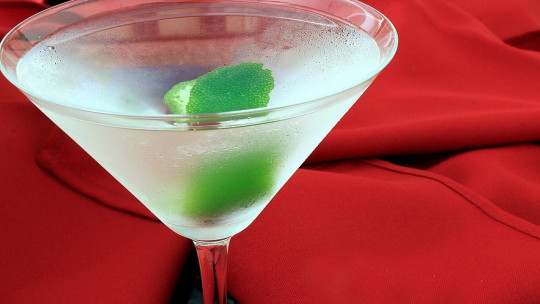
In this article we are going to review some of the most frequent behaviors of a person with alcohol problems and how they affect relationships.
Driving of an Alcoholic with His Partner
The most important ones are these:
Hide alcohol consumption
Let’s imagine Juan, who decides to hide his wine bottles in the back of a tool closet, firmly believing that his partner would never look there. Why does he do it? Well, in the parallel universe of an alcoholic, this act of concealment is as common as losing socks in the washing machine. The idea is simple: “If you don’t see it, it doesn’t exist.”
But what motivates this alcoholic game of hide-and-seek? First, there is fear of judgment. No one wants to be the main character in the “How I Ruined Family Dinner by Being Drunk” story. So, like good magicians of dissimulation, they opt for the ostrich tactic, hiding their heads (or in this case, their alcohol) underground.
Second, the negation. If John hides the wine, he can continue to argue in his domestic court that he does not have a drinking problem. It’s the classic “it’s not what it seems”, but with yourself.
And finally, the illusion of control. Juan thinks that if he regulates when and how he secretly drinks, he somehow keeps the reins of his life. A bit like saying “I control the alcohol, the alcohol doesn’t control me” while he stumbles searching for the bottle opener in the dark.
But the main reason for hiding his consumption is that Juan already suspects that he is drinking too much and that what he is doing is bad, so he indefinitely postpones the moment when his partner or a family member confronts him and points out the problem.
Irritability and sudden mood changes
Alcohol directly interferes with the brain systems that regulate mood. It increases levels of dopamine, a very important neurotransmitter, initially creating a feeling of euphoria. However, this is just the prelude to a much more complex and less pleasant effect.
As consumption advances, alcohol begins to inhibit the activity of excitatory neurotransmitters such as glutamate, and increases that of inhibitors, such as GABA.
This chemical imbalance slows down the brain’s ability to process information clearly, slowing us down in both thought and action, and diminishing our ability to control ourselves emotionally. This is where irritability and mood swings come into the picture.
On the other hand, alcohol also triggers a stress response in the brain, releasing cortisol, known as the stress hormone. This increase can exacerbate irritability and make our emotions feel more intense, making us more prone to excessive reactions.
Lack of interest in shared activities
In people with alcoholism, the brain experiences significant neurochemical changes that affect the perception of pleasure and motivation, leading to a decrease in interest in activities that were previously considered rewarding. This phenomenon is due, in large part, to the alteration in the brain’s reward system, especially in the way in which neurotransmitters such as dopamine are regulated.
Dopamine, a key neurotransmitter in the process of experiencing pleasure and reward, is released in large quantities during alcohol consumption, producing initial sensations of euphoria and well-being. However, with prolonged and excessive alcohol consumption, the brain begins to adjust by reducing its natural dopamine production and the sensitivity of dopamine receptors. As a result, activities that would normally produce pleasure, such as hobbies, social interactions, or personal achievements, no longer generate the same dopamine response as before, making these activities less attractive and satisfying.
This neurochemical adaptation contributes to a vicious cycle in which the person with alcoholism becomes increasingly dependent on alcohol to feel pleasure or avoid discomfort, neglecting other sources of satisfaction in your life. The result is a gradual loss of interest in activities unrelated to alcohol consumption, which can lead to a significant deterioration in quality of life, interpersonal relationships, and general health.
That is, it is important to address alcoholism with interventions that not only focus on abstinence (avoiding alcohol consumption), but also on restoring and promoting healthy alternatives for reward and pleasure (exercising regularly, building healthy relationships and feeling of community, etc.)
For example, if before Carlos and Ana planned to go hiking on Saturdays, now Carlos prefers to say that he is tired or make up some excuse to stay home drinking. It’s not that he suddenly hates nature or has developed an allergy to the outdoors; is that alcohol has robbed you of your energy and desire to participate in those activities you used to do together.
This change in behavior can be particularly painful for the couple, as they feel abandoned in a world they used to share.
The key here is to recognize that Carlos has not lost interest in Ana or in living life, but rather is caught in the orbit of a much larger problem that needs to be addressed with understanding, patience, and, above all, professional help.
Lies or excuses about your whereabouts or activities
Alcoholism often leads to a pattern of lies or excuses about whereabouts or activities a behavior that erodes the fundamental trust in any relationship.
This dynamic originates from the need to hide the magnitude of the problem or avoid conflicts related to alcohol consumption. The desire to avoid judgment or shame drives the person to fabricate stories that, although they may seem insignificant at first, can accumulate until they become a solid barrier between the couple.
This behavior affects the relationship in a profound way, undermining the trust and emotional security that are pillars of any union. Over time, the partner unaffected by alcoholism may feel isolated, deceived, and frustrated, leading to a deterioration in communication and, ultimately, the dissolution of the bond.
Neglect of family or domestic responsibilities
Alcoholism frequently leads to neglect of family or domestic responsibilities, due to the prioritization of time and resources in alcohol consumption over daily obligations.
This behavior not only affects family dynamics, but can also create an environment of tension and stress between loved ones. The inability to carry out essential tasks, such as childcare, household management or financial obligations, places an additional burden on other family members, who must compensate for these shortcomings. This pattern of neglect has a domino effect, affecting not only the structure and functioning of the family nucleus but also the emotional and psychological health of its members.
Children, in particular, may experience feelings of abandonment and worthlessness, while partners may feel overburdened and resentful. Recognizing the impact of these actions and seeking professional help are crucial steps toward recovery and restoring family balance and harmony.
Social isolation
Alcoholism often leads to social isolation, a phenomenon that occurs when a person prioritizes alcohol consumption over regular social interactions and activities. This withdrawal can be both a cause and a consequence of alcohol abuse.
On the one hand, the person may seek to isolate themselves to hide the magnitude of their consumption; On the other hand, the deterioration of social and family relationships due to alcoholism can lead to greater isolation.
This isolation not only limits their support network, but also reinforces the cycle of consumption, creating a vicious cycle that is difficult to break. Loneliness and alcohol feed off each other in a dangerous dance. For Elena, each day becomes an echo of the previous one, full of excuses not to go out and reasons to open another bottle.
The paradox of social isolation due to alcoholism is that, although the person isolates themselves to avoid judgment or the discomfort of socializing sober, this isolation leads to greater loneliness and suffering. What began as a form of self-preservation becomes a self-imposed prison.
Denial of alcoholism problem
Denial is a characteristic commonly associated with alcoholism, acting as a significant barrier to both recognizing the problem and seeking help. Many people with alcohol dependence minimize the seriousness of their situation, reject the idea that alcohol is negatively affecting their lives, or even completely deny that their use is problematic.
This denial can be both an unconscious psychological defense, designed to protect oneself from the pain and shame associated with recognizing the problem, or a conscious resistance to the possibility of changing a deeply ingrained habit.
This defense mechanism is rooted in fear and vulnerability. Admitting an alcoholism problem means recognizing that something has gotten out of control, that “I can handle it” was more of a hope than a reality. For the person, facing this means opening themselves up to judgment, drastically changing their lifestyle and, most intimidating, facing themselves.
An everyday example could be when friends or family express concern about the person’s consumption, and they respond with arguments such as: “Everyone drinks,” “it’s just for socializing,” or “I can stop whenever I want.” These phrases are the bricks with which she builds her fortress of denial, each reinforcing the idea that there is no real problem.
However, denial doesn’t just affect the person with the problem; It creates an invisible barrier between her and her loved ones.
Episodes of violence or aggression
Alcoholism can significantly increase the risk of episodes of violence or aggression, both in domestic and social environments. This increased propensity for violent behavior is due, in part, to the effects of alcohol on the central nervous system, which can lead to decreased inhibition, poor judgment, and increased impulsivity.
Additionally, alcohol impairs the ability to process social cues appropriately, which can result in misinterpretations of others’ intentions (misunderstandings) and, consequently, disproportionate reactions.
The presence of violence in individuals with alcohol problems not only has a devastating impact on personal and family relationships, but also represents a significant risk to the safety and well-being of all involved. Victims of this violence, often family members or loved ones, can experience long-term consequences on their mental and physical health.
Financial difficulties due to spending on alcohol
Financial difficulties are a direct and often devastating consequence of alcoholism, caused by excessive spending on alcohol. This pattern of consumption not only involves the purchase of alcoholic beverages, but can also entail additional costs related to the lifestyle that accompanies drinking, such as frequent outings, gambling or impulsive purchases (made under the influence of alcohol).
As dependence deepens, the individual’s financial priority shifts toward purchasing alcohol over basic needs and responsibilities, such as rent, mortgage, household bills, food, and family care.
This realignment of priorities can lead to significant debt, loss of savings, and even bankruptcy. The situation is further complicated if alcoholism affects the individual’s ability to maintain stable employment. Loss of income, coupled with increased spending, creates a vicious cycle of financial hardship that can be extremely difficult to break without outside help.
Prioritize alcohol consumption over relationships
Prioritizing alcohol consumption over relationships is a common indicator of alcoholism, where drinking takes center stage in the individual’s life, relegating meaningful personal interactions to the background. This behavior not only affects the dynamics of the couple’s relationship, but can also erode family ties and friendships. As alcohol becomes the priority, less time and attention is invested in the emotional and physical needs of loved ones, which can lead to feelings of neglect, rejection, and loneliness in them.
The reconfiguration of priorities profoundly affects the quality of the relationship. Communication deteriorates, shared activities are reduced and tension increases. Promises and commitments take a back seat, often unfulfilled due to the consequences of excessive alcohol consumption. This cycle of inattention and neglect can lead to constant conflict, resentment, and in some cases, relationship dissolution.
Recovery involves recognizing the negative impact alcohol has had on relationships and consciously working to repair those bonds. This process not only requires reducing or eliminating alcohol consumption, but also investing time and effort in rebuilding trust and strengthening personal connections. Couples and family therapy can be essential in helping a person recover, offering a safe space to explore emotions, improve communication, and heal the wounds caused by alcoholism.








